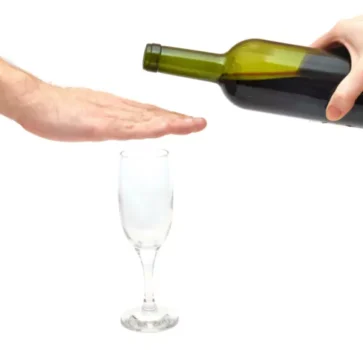When Youve Had Too Much: Hangover Symptoms and Remedies

But instead of wallowing in regret, there may be things you can do to take control of your hangover. Drinking can also affect your mood if how long does a mild hangover last you already have a mental health condition or use alcohol as a coping mechanism for your mental health. A 2017 study found that many people report feeling more aggressive or even feeling an overwhelming amount of emotions when they drink, especially if they had some dependence on alcohol. The study also suggested that heart rate increases as you drink more alcohol, and these increases can raise your risk of arrhythmia, an irregular heartbeat. There is no set number of drinks that will cause a hangover.
What are the Symptoms of a Hangover?

Well, the answer may not be a simple one, but we’ve got you covered… At first, this can be beneficial, making you feel relaxed as your blood pressure is lowered. EMedicineHealth does not provide medical advice, diagnosis or treatment. Explore the structured journey of addiction recovery with our comprehensive guide to rehab.
Factors That Impact How Long A Hangover Lasts
The temporary effects include immediate and delayed effects—a hangover is caused by the delayed effects of alcohol. In order to ward off the symptoms of dehydration following a hangover, it is good practice to drink non-alcoholic fluids. In addition, ensuring you have an adequate amount of time to sleep may decrease difficulty concentrating and fatigue the following day. A night of drinking leaves you feeling nauseous, headache-prone, and just downright miserable the next day.

Popular Health Centers

However, concentrations rarely get that high, so that’s not the complete explanation. A person can avoid a hangover if they drink a very small amount or if they abstain from alcohol use. There is no particular way to increase the speed at which a person detoxes from alcohol and recovers from a hangover. BetterHelp offers affordable mental health care via phone, video, or live-chat. Drinking and smoking at the same time increase the severity of a hangover. Some medications interfere with your body’s ability to properly metabolize alcohol.
- It’s important to check with your insurance company to understand the details of your coverage, including any copayments, deductibles, and the network of approved treatment providers.
- On average, a healthy adult will process approximately one alcoholic drink per hour.
- However, it is almost always better to treat the co-occurring disorders at the same time rather than have the untreated illness bring back symptoms of the one that received treatment.
- Explore the structured journey of addiction recovery with our comprehensive guide to rehab.
- It is important to stay hydrated, eat nutritious food, and get plenty of rest to prevent the symptoms of hangover.
- A hangover is a collection of unpleasant symptoms that occur after consuming excessive amounts of alcohol.

Please note the date of last review or update on all articles. There’s no greater “wet blanket” on an otherwise joyous occasion than a hangover. Heroin addiction is a severe and often misunderstood issue, affecting… But how do hangovers work, and exactly how long can a hangover last?
- A hangover typically lasts anywhere from 12 to 36 hours, although it could last in some cases for up to 72 hours.
- According to Cleveland Clinic, hangover symptoms usually start to ease up between eight to 24 hours.
- Long-term effects of consuming too much alcohol can negatively impact your health.
- How long it takes to sober up after drinking depends on your BAC.
- While coffee or cold showers might make you feel more alert for a short time, they do not impact your BAC level.
- There is no particular way to increase the speed at which a person detoxes from alcohol and recovers from a hangover.
Here, we explore Sober living home comprehensive treatment options designed to guide individuals towards a path of sustained recovery. These symptoms are also called alcohol poisoning and are a medical emergency. But if you do drink, here are simple tips to help prevent and relieve the misery. Fortunately, knowing the causes of hangovers, as well as different ways to cure a hangover, can help.
Nonalcoholic and Alcoholic Fatty Liver Disease
The more you drink, and if you drink on an empty stomach, the more severe the hangover might be and the https://ecosoberhouse.com/ longer it may last. On average, a healthy adult will process approximately one alcoholic drink per hour. Drinking more than this may cause your liver to struggle and may lead to a much-altered hangover experience.
- Rehydrating with fluids, most importantly water, and taking an over-the-counter pain medication like acetaminophen (Tylenol) or ibuprofen (Advil) will help with your symptoms.
- There are cases where a hangover can last up to 72 hours, but those are extremely rare.
- These hangovers are usually the result of heavy drinking and can have lasting effects.
To know that, we have to look at the science behind what causes hangovers. You’ll soon start receiving the latest Mayo Clinic health information you requested in your inbox. Sign up for free and stay up to date on research advancements, health tips, current health topics, and expertise on managing health. Outpatient treatment programs provide counseling and therapy sessions on an outpatient basis.

For example, a BAC of 0.10 (100 mg/dL) means that 0.1% of your bloodstream is comprised of alcohol. Blood tests and breath alcohol analyzer devices, such as the Breathalyzer, can measure your BAC, which directly correlates to your level of intoxication. There are slight differences in how quickly or slowly different people metabolize alcohol, but the physiology of a hangover is very similar between one person and another. The medical term for a hangover is “veisalgia,” which is a combination of the Greek word for pain and a Norwegian word for “uneasiness following debauchery.” In addition, it has also never been shown in a study that age affects the severity of hangovers.